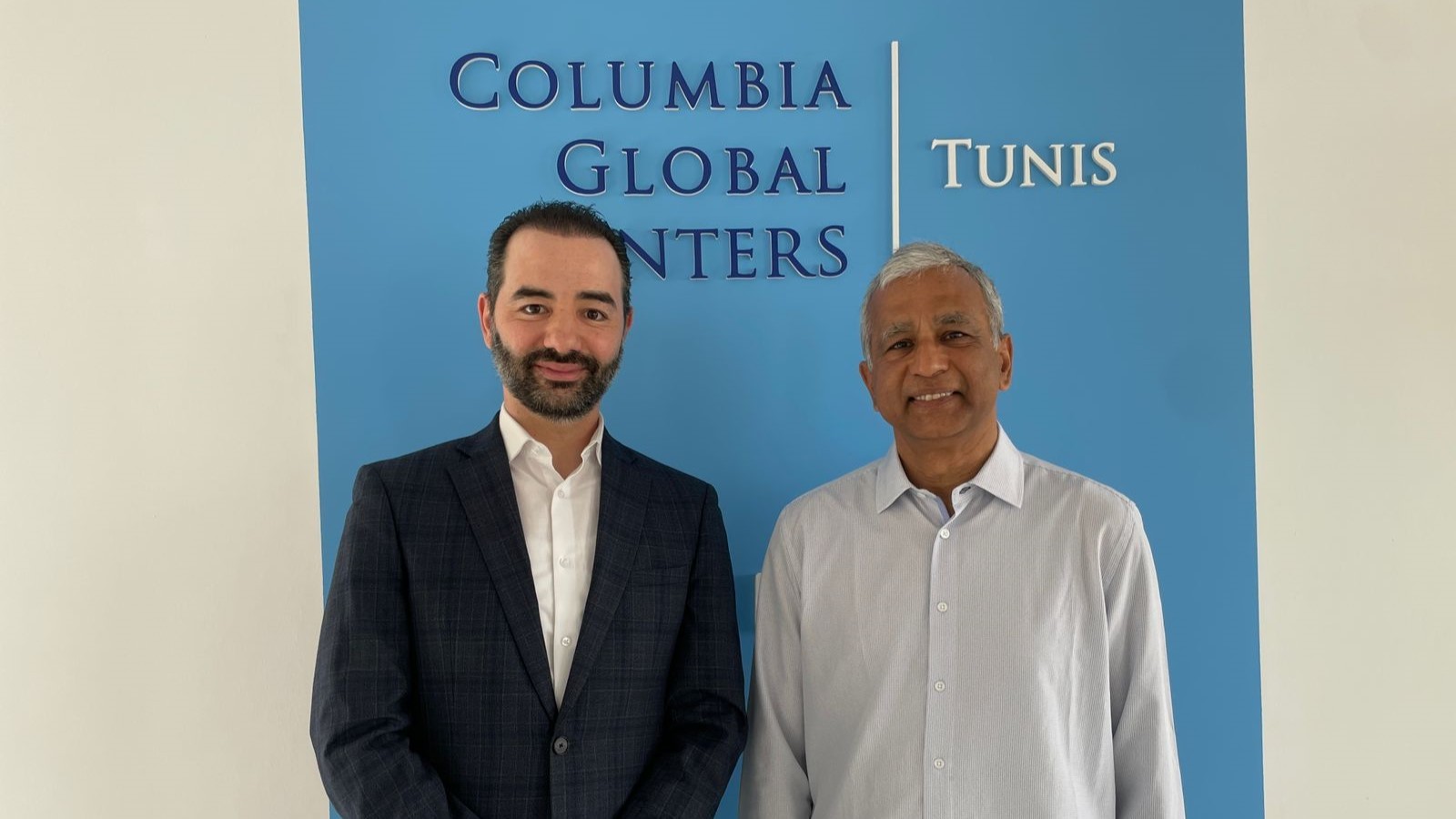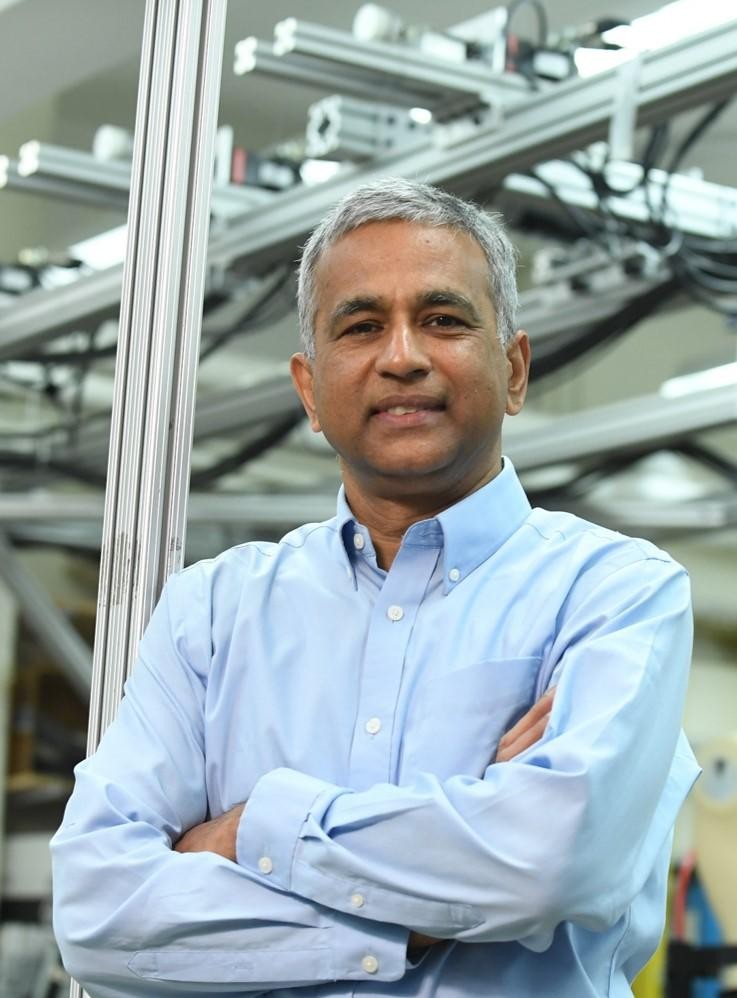The Tunis Global Center Welcomes the Director of ROAR Lab

Columbia Global Center Tunis hosted Professor Sunil Agrawal, who is a member of its Faculty Advisory Committee, during his second visit to Tunisia.
Pr. Agrawal is a distinguished Professor at Columbia University's Department of Mechanical Engineering and Department of Rehabilitation and Regenerative Medicine as well as the director of the Robotics and Rehabilitation (ROAR) Laboratory, which is housed in both the Engineering and Medical campuses of Columbia University. The lab focuses on developing innovative robots and methods to assist humans in relearning, restoring, or enhancing functional movements.
He is in Tunisia as the keynote speaker at the 8th International Symposium on Robotics & Mechatronics in Tunisia, co-sponsored by CGC Tunis.
This symposium follows a series of successful conferences held in various global locations including Hanoi, Vietnam (2009); Shanghai, China (2011); Singapore (2013); Poitiers, France (2015); Sydney, Australia (2017); Taipei, Taiwan (2019); and Qingdao, China (2021).
The event aims to convene researchers, industrial professionals, and students from diverse disciplines related to Robotics and Mechatronics. It provides a platform for participants to disseminate their research findings, foster collaborations, and discuss emerging trends and challenges in an intimate and stimulating environment.
More about Professor Sunil Agrawal:

Pr. Sunil Agrawal has developed a highly visible interdisciplinary program in rehabilitation robotics involving faculty from School of Engineering and Applied Sciences and College of Physician and Surgeons at Columbia University. Neural disorders, such as stroke and Parkinson’s disease, limit the ability of humans to walk and perform activities of daily living. Pediatric disorders such as cerebral palsy, spina bifida, and Down’s syndrome delay the development of children and pose many functional limitations. Old age diminishes the sensory and motor systems. Through a range of pilot and clinical studies involving human subjects, Pr. Agrawal has shown that novel training robots can help humans to relearn, restore, or improve functional movements.
He has active collaborations with faculty in the departments of Neurology, Rehabilitation Medicine, Pediatric Orthopedics, Otolaryngology, Geriatrics, and Psychiatry. A selected list of these ongoing studies are: (i) Perturbation training of the elderly using a Tethered Pelvic Assist Device (TPAD), (ii) Gait training of stroke patients with asymmetric forces, (iii) Balance training of children with cerebral palsy, (iv) Gait characterization of patients with vestibular disorders, (v) Balance Training of Parkinson patients, (vi) Novel neck braces for assistance and training of patients with head drop, (vii) Novel dynamic spine braces for patients with scoliosis. These studies are funded by grants from the National Science Foundation, National Institute of Health, Spinal Cord Injury Research Board, and others.
Pr. Agrawal received a BS in mechanical engineering from IIT, Kanpur (India) in 1984, a MS degree from Ohio State University in 1986, and a PhD degree in mechanical engineering from Stanford University, California, in 1990. He is a fellow of the American Society of Mechanical Engineers (ASME) and American Institute of Medical and Biological Engineering (AIMBE). He is an author of 450 research articles, 3 books, and 13 patents.